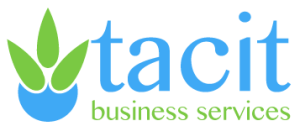A small business CRM system (Customer Relationship Management system) is an integral part of your business. We all need to track leads, manage opportunities and communicate with current and future customers. A small business CRM system is a structured approach to CRM that, these days, incorporates technology as a tool within that approach. Taking a structured approach ensures that the experience for staff and customers is strategic and that outcomes are predictable.
People, processes & technology
When asked, “What is a CRM?”, many people will answer with the name of a technological tool. But it’s important to understand that the tool is just part of the system. People and processes are also integral to a small business CRM system. You need a hammer to build a dog house, but the dog house won’t get built if all you do is buy a hammer.
The effectiveness of a CRM system relies on the people using it. In isolation the tool is useless. It must be adopted, understood, accepted and used by those who are also part of the system to provide any sort of value. In that regard, processes around the gathering, classification and input of information ensure consistency and reliability of data.
Imagine if your client data was actually useful!
Many small businesses are using Excel as the main tool in their CRM system. However, as the customer and lead lists grow, the information collected increases and more staff become involved in the process Excel can quickly become unwieldy and ineffective.
A dedicated CRM tool is a relational database. In a nutshell, that means that one piece of information (your customer’s name, for example) can be connected to any number of other pieces of information: emails, call logs, activity reports, categories, files and so on. That means effective reporting and tracking for you. No more increasingly complex spreadsheets with more and more columns or nightmares trying to sort through duplicate rows.
What can I do with a small business CRM system?
A small business CRM system can automate many tasks and make keeping track much simpler proposition:
- Scheduling meetings, calls, to-do’s
- Reporting on upcoming opportunities or outcomes
- Tracking leads for follow up
- Tracking sales funnel
- Reminders
A well implemented small business CRM system will reduce the time your staff spend on sales administration tasks, provide a central data source that means everyone can stay informed and could be the powerhouse behind your business decisions.


